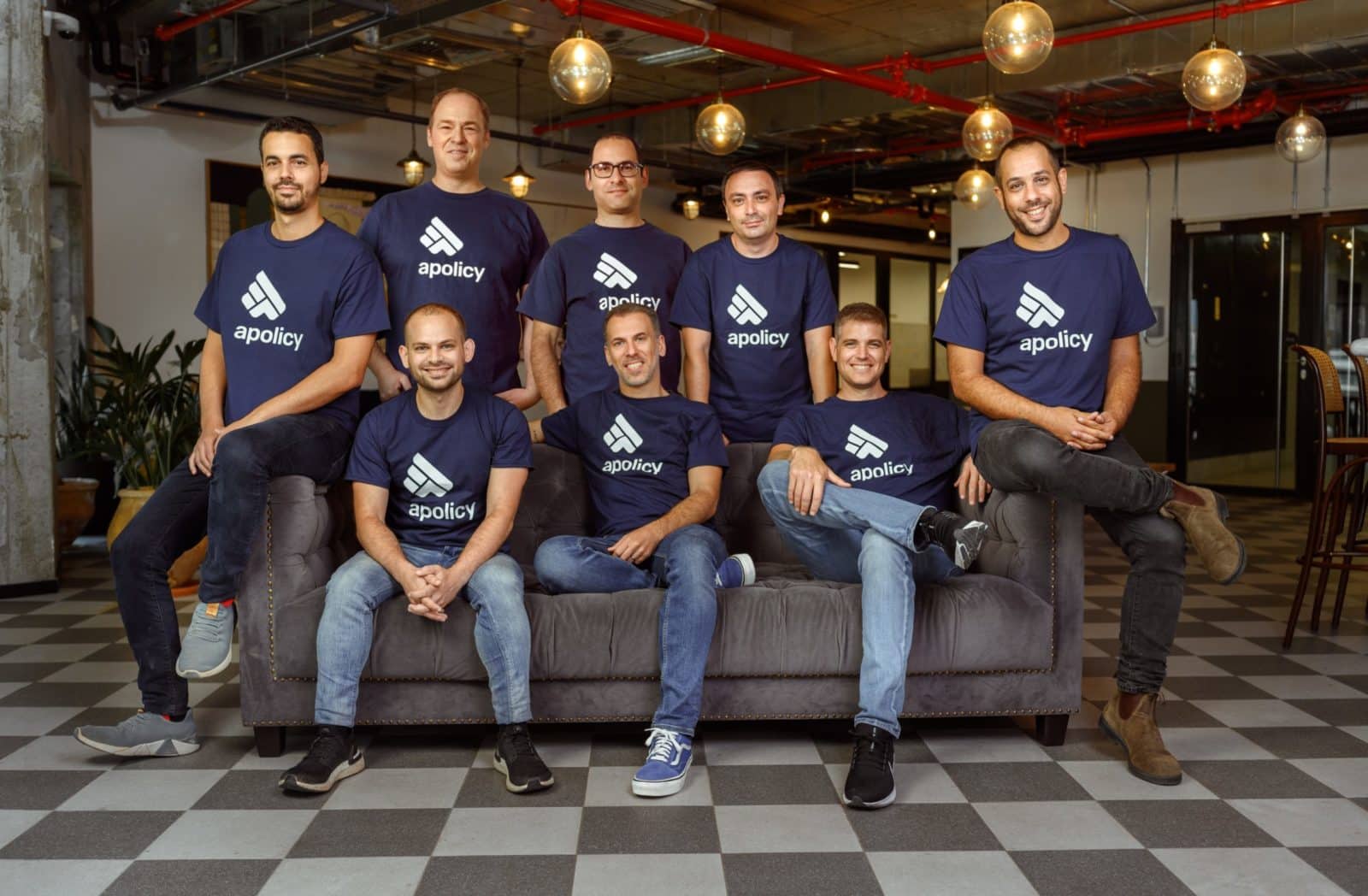
Yael Eckstein, Director of Marketing at StageOne Ventures
Last week, StageOne portfolio company Apolicy announced they were being acquired by Sysdig, a company that addresses the challenges of securing containers, Kubernetes, and public cloud infrastructure.
The announcement was amazing news, not only that the company successfully made an Exit, but also because it was the first Exit to be made from the StageOne Fund III. As such, it was only fitting that I sit down with Apolicy’s Founder, Maor Goldberg, and learn more about both his personal journey and the company’s journey to success.
For those who do not already know Maor and the Apolicy team, it is important to understand what a pleasure it is to work with them. Maor is humble, realistic, thrives for the best, and leads by example. It is only natural that his team is motivated to follow in his footsteps and thrive.
Hello Maor. Can you tell us a bit about your personal entrepreneurial journey? How did it get started?
I left the army in 2007 after 10 years of serving in Mamram. After 10 years in what I then called a “very large” organization, I wanted to do something different. I decided I wanted to start a company. It started with the three of us (my co-founders, Shlomi Wexler and Eran Leib, and few others) sitting in the living room and asking, “what problem do we need to solve and can we even solve it?” Using our background in technology, we came up with a concept, which eventually became “Whitebox Security” a solution that dramatically reduces security risks by identifying where sensitive data resides, who has access to it, and how it is used. We started pitching to companies as we looked to receive initial feedback.
Since we didn’t have any experience in fundraising, we felt strongly about developing the product before raising money, which in theory was a great idea. But then came 2007, and the economic crisis made it impossible to raise money for such a venture. Remember that we were in the cyber industry, which was still in its infancy — they used to call it “information security” back then — so both investors and at times customers didn’t always prioritize security investments. We decided to bootstrap and that’s what we did for three years. We rented a hardcore small apartment in downtown TLV and worked to build the product — as we really believed that it could solve a massive issue for large organizations. Once our prototype was ready, we pitched to companies again, and to our surprise, they were, unfortunately, not too thrilled about what we had to offer.
We realized we needed to change our game and product, and we moved into the field of Unstructured Data Governance. Once we had a product that was of interest to customers, selling became a cinch. Our experience is what guided my now steadfast belief that “product-market fit” is essential to every product journey. We learned the hard way the first time around!
If you don’t understand what the customer is interested in and what he needs, you can take as long as you want to build a product, but it won’t ever provide real and profitable value.
We started selling to Europe and the US and realized that we needed people on the ground there, which is why I moved. Fast forward to 2015; we were acquired by SailPoint Technologies. After SailPoint went public in 2017, we decided we want to move on to our next venture — Apolicy. It was the same people, in the same place, only with a new idea.
You are in the US, and you also have a development team in Israel — can you tell us a bit more about how this might affect companies, how you manage both teams, and if you think this international approach is a must for Israeli founders.
I have been living in the Valley for the last few years, and yes there is no doubt that the distance poses a challenge. This is true for the short and long term but has been exacerbated in the past year and a half by the global pandemic, and not being able to travel to Israel. I think the best solution, and this is what has worked for us, is to have half the team in Israel and the other half in the US. Sales, Marketing, and customers in the US, and R&D in Israel. The fact that we had founders in both places (Shlomi in Israel and Eran and myself in the US) has been a huge plus. Furthermore, the fact that we have all known each other since the army days was also to our advantage.
Communication is key! Well, communication and flexibility. It’s not easy to manage a company like this but having someone on the ground in the US has made our operations run much smoother. Companies need to work harder to make this cross-border reach happen.
In retrospect, what advice would you give yourself when you started out as an entrepreneur?
Always remember two words: product-market fit! It’s one of the hardest things to achieve when it comes to an Enterprise solution, but it is also the most important, and it must be a guiding principle. Though it may be hard to define, you can feel great product-market fit through your customers. Never dismiss them, rather seek to compare them to where you and the product stand and adjust accordingly. Don’t bring in more salespeople or redo your website, understand if your product has the right market fit, and is something that can be sold because it comes to really solve a high-priority pain.
What have been your most challenging moments in the entrepreneurial journey?
There are two things that, looking back, posed a challenge, but also made me stronger. The first was being alone in the US. Being without your extended family and friends can make it a very lonely journey for an entrepreneur. Another challenge I faced was that, when we founded Whitebox Security, we were 4 founders. Unfortunately, we had to separate from one founder. I remember realizing how much the founding team is such a strong factor in a company’s success.
Share a failure you experienced and any lessons learned from the experience.
Once, we were working on a very important deal with a large and highly sought-after corporate in France. We won the POC and out-led our competition. However, just before the deal closed, they told us they were moving forward with our competition. I look back and we were way too naive. You must always know who you are working with, from the decision-makers to the resellers. Multi-tier enterprise sales are complex and require trustworthy partnerships.
Share a company moment that makes you proud.
It may sound cliché, but it’s the small moments that create the most impactful, pride-generating memories. From walking into a meeting and seeing a CISO work with the product you’ve built to small quirks and habits that bind us as a team.
What is the best advice you could give an entrepreneur in 2021?
This past year, I truly learned that in times of uncertainty, companies must learn to be lean, flexible, and fast-adapting when changes arise. On the one hand, it’s important not to waste time on massive company/product investments that may not even work. On the other hand, if something works, lean into it with full force and focus your energy there. We worked very closely with our design partners, received constant feedback, and continuously worked to understand their needs until the ideal solution was built, a process that paid off in the end.
Web Design by LowTech | Developed by Ori Mintz | Photography by David Garb | Branding and Web Design by Titan BrandWise
